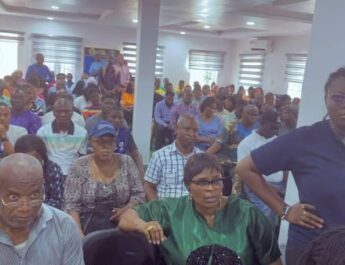To ensure effective trade facilitation, the Nigeria Customs Service (NCS), recentl launched what it referred to as Advance Ruling Project
By Udoka Ekeleme, Abuja
The Nigerian Customs Service (NCS), in collaboration with the Nigerian Energy Support Programme (NESP), initiated a ground breaking project named Advance Ruling. This project, according the Service is aimed at enhancing trade facilitation and a more transparent business environment for stakeholders in the trading sector.
At the launching of the event held on the 2nd day of May, 2024 at Envoy Avenue in Abuja, the Controller General of Customs Bashir Adewale Adeniyi underscored the significance of Advance Ruling. He said that it is the main mechanism that enables traders to secure binding decisions from Customs administrations regarding the classification, origin and valuation of goods before importation.
The CGC Adeniyi who expressed gratitude to stakeholders and partners for their presence, said that the project launch would reduce compliance cost and promote favourable business climate for traders.
He said this was the first step towards launching the Nigerian Customs Service Advance Ruling starting with stakeholder engagement.
He recognized the projects alignment with the World Customs Organization (WCO) and the World Trade Organization (WTO). Adeniyi emphasized its role in facilitating both domestic and international trade while enhancing customs compliance.
He said “According to the WTO and WCO Advance Ruling enhances predictability and transparency I customs procedures, streamlining trade processes and minimizing delays, uncertainties and cost associated with customs clearance”. The CGC lauded president Bola Ahmed Tinubu for his commitment to enhancing Nigeria’s economy and supporting the service. He also noted that the launch of Advance Ruling coincides with president Tinubu’s policy directive to facilitate legitimate trade. This is reflected in the Policy Advisory Document of the government which signifies recent achievements such as the approval to decongest the ports and make them free and accessible for importers and operators.



